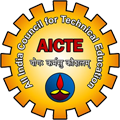.png)
The aviation industry essentially is one of the rapidly growing sectors in the world contributing largely to global economic growth, job creation, and the travel and tourism industry. Young aspirants throughout the globe are interested in joining the aviation sector and soaring high with success.
Government Aviation Colleges offer numerous aviation courses that aspirants can opt for to start a remarkable journey with the aviation industry. However, the aviation industry needs to focus more on resource management training for its seamless operation globally.
First, let us understand what is resource management?
Resources are physical materials that we, humans value. They are the inputs that we utilize to perform work or a job more efficiently. Resource Management includes planning, scheduling, and allocating these inputs across different activities to maximize efficiency.
The top Government Aviation College in Kolkata imparts the best aviation resource management training that helps the candidates learn about the three categories of aviation resources physical, human, and intangible resources and how to utilize a small thing for a greater purpose without compromising on one’s safety and security.
Resource Management plays a key role in enhancing customer satisfaction and flight safety measures
Resource Management skills ensure better communication among the various departments of the aviation industry which further helps in spot-on decision making within the preset comprehensive framework.
Why do aviation professionals require resource management training?
Bridges the unforeseen gaps in the aviation industry
The aviation industry is very unpredictable. Sometimes prevalent weather conditions can disturb seamless flight operations and unforeseen gaps can show up due to this. Proper resource management training can help aviation professionals bridge the gaps effectively with the available resources without engaging in any sort of difficulties.
Improves Airline competitiveness
When an airline can provide good service at a reasonable cost it enhances the chances of that airline in having an edge over its rivals. This, in turn, is likely to reflect in the form of increased footfalls of passengers. The top government aviation college in Kolkata inculcates the best knowledge and self-grooming skills among the students so that they can provide the best customer service and keep up the reputation of that particular airline they are working with.
Contributes towards overall transparency:
Resource management comes equipped with multi-faceted factors such as calculating the available resources, allocating resources, prioritizing tasks, and scaling up performance with the resources at hand. The working is no different in the case of the aviation industry. By following the above measures visibility improves, so does cross-functional transparency. This, in turn, ensures a free and concrete flow of information across various departments. Ultimately, all the resources can work coherently, which then helps the airline to create a mark for itself in the industry.
Bridges the gap between utilization and efficiency:
The main aim of resource management training is how an aviation management professional utilizes the available resources with efficiency and ultimately measures the efficiency levels that these resources bring to the table. By viewing resource management as a base that can determine the future of an airline company and by implementing the principles of resource management in the daily functioning of the airline, the gap between utilization and efficiency can be reduced.
These are not only limited to technical resources but also touch upon crew resource management, which focuses more on the ability to communicate, teamwork, dedication, honesty situational awareness, and more.
Cost Minimization
Airline Companies can minimize costs by following a perfect resource management model. Moreover, they can keep a track of the resources that are scarce and utilize them judiciously. The airlines do not have to bother about keeping aside additional funds to raise such limited resources. Resource Management ensures that airline companies can manage incidents smoothly that otherwise requires a lot of funds to set the situation right.
Facts state that labor accounts for about 32.3% of an airline’s operating costs, followed by fuel, which takes about 17.7%. To avoid these costs from shooting up further or surpassing the pre-set budget, resource management becomes useful.
Aviation Resource Management and COVID 19
The deadly pandemic has hit all the industries very badly. The story of the aviation industry is no different. The aviation sector saw a drastic reduction in the number of the passengers globally in 2020-2021. The airline companies suffered a huge loss in terms of revenues, growth, services, etc. They couldn’t provide the passengers with cost-effective travel plans. But this is where resource management came to the rescue for some airline companies who had utilized their available resources with precision and kept their bases strong even when their capacities had dropped and the future seemed uncertain.
Resource Management is very important for the smooth functioning of the aviation industry so it is crucial to provide the aviation professionals with good resource management training.
 CCPTR,
CCPTR, 

 National Skill Development Corporation
National Skill Development Corporation Ministry of Education
Ministry of Education MoE's Innovation Cell
MoE's Innovation Cell Institution’s Innovation Council
Institution’s Innovation Council AICTE
AICTE


Leave a comment